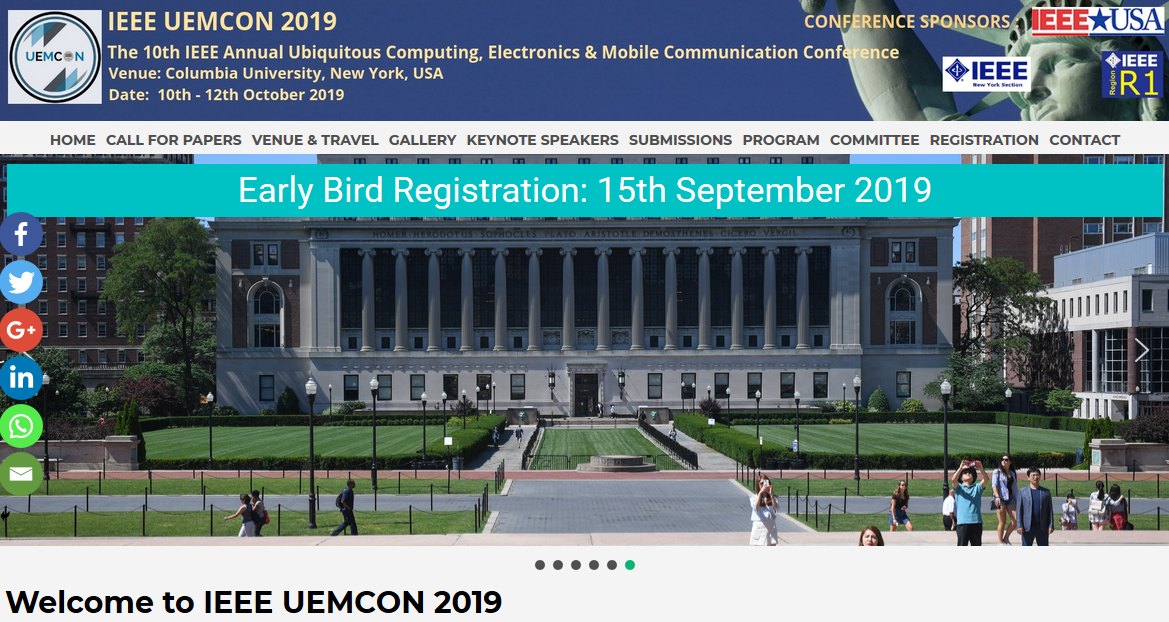We are delighted to announce that a research paper developed under the mF2C Project, has been accepted for presentation in the IEEE 10th Annual Ubiquitous Computing, Electronics & Mobile Communication Conference (IEEE UEMCON 2019), to be held on 10-12 October 2019 at Columbia University, New York (USA)
Title “An Architectural Schema for Performance Prediction using Machine Learning in the Fog-to-Cloud Paradigm”,
by Souvik Sengupta*, Jordi Garcia*, Xavi Masip-Bruin*, Andres Prieto-Gonzalez*
* Advanced Network Architectures Lab (CRAAX), Universitat Politècnica de Catalunya (UPC), Spain
Abstract
The Fog-to-Cloud (F2C) paradigm is emerging to both provide higher functional efficiency for latency-sensitive services and also help modern computing systems to be more intelligent. As it is still in its infancy, the biggest challenge for this domain is to build a proper resource allocation technique as part of an efficient resource management module. The diversified and distributed nature of that paradigm creates some additional hurdles for choosing the appropriate resources for executing some tasks. Significantly, efficient resource consumption estimation and performance forecasting are core issues in the design and development of a proper and smart resource management mechanism for F2C systems. Considering this fact, in this paper, we aim at designing an architectural framework for a prediction-based resource management mechanism for F2C systems. The performance prediction is based on supervised machine learning technology. The proposal has been evaluated and validated by predicting the performance and resources usage of F2C resources through several tests. Primarily, we have run an image recognition application on different F2C resources and collected performance-related information and resource consumption information. Then, by adopting the multivariate regression methodology, we perform some standard machine learning techniques to predict the performance and estimate the resource consumption of the F2C resources. Finally, to justify the effectiveness of our proposal, we calculated the value of a cost function between estimated values and the real measured values.
